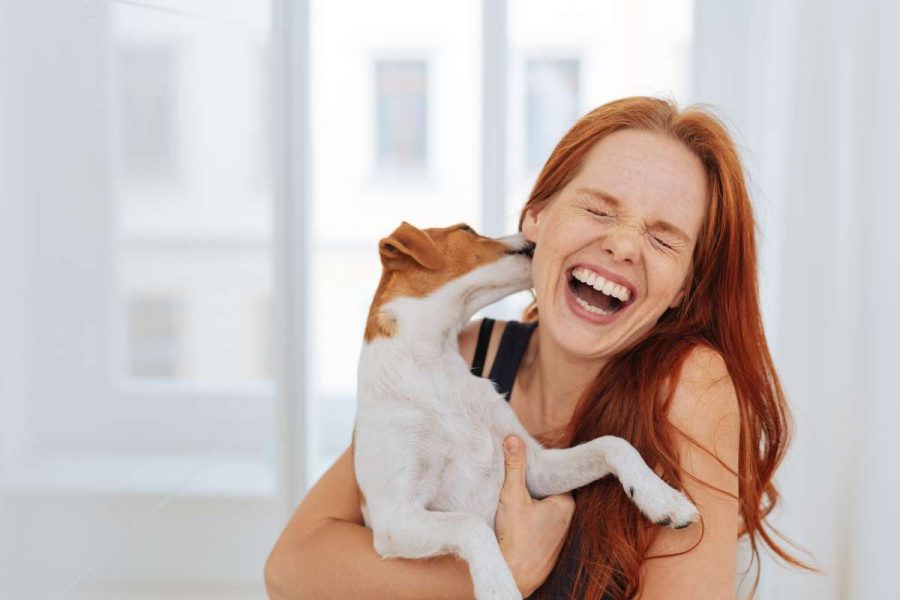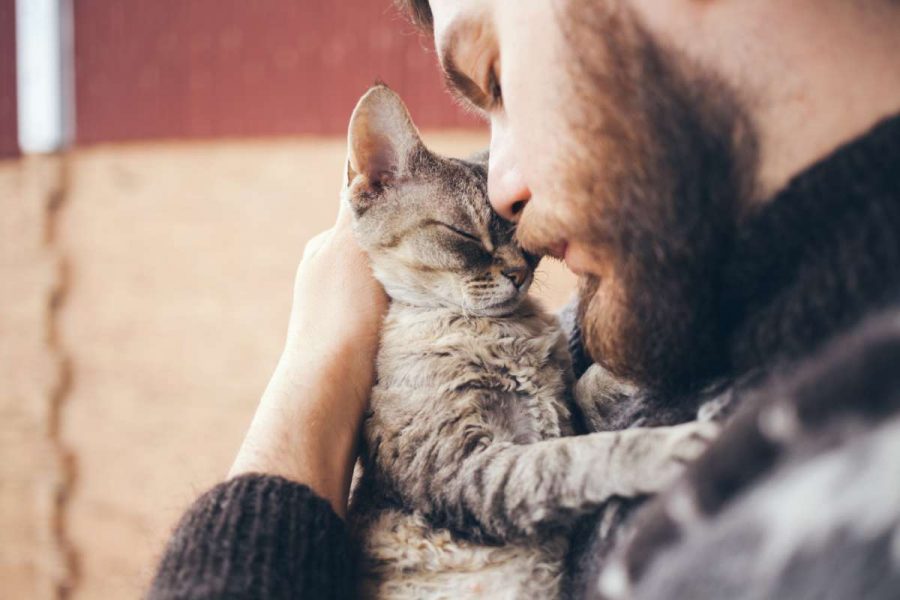Pet owners know that the daily presence of their pet is essential to their well-being. Whether it is a dog, a cat, a rabbit or a ferret (and so many more besides!), they are there every day and accompany us for better or worse. Far from being a subjective impression, the benefits of the presence of an animal on a daily basis are scientifically proven for both emotional and physical health. So it’s time to say a big thank you to the great pet community!
Science acknowledges their positive impact
For pet owners, it is undeniable that having an animal around is a real asset. Their continuous presence and joie de vivre represent an unwavering support in everyday life.
A large-scale study of 3.4 million people in 2017 showed that the risk of developing cardiovascular disease was 33% lower for single people who owned a dog (compared to people living alone without an animal). In addition, the life expectancy of dog owners is similarly increased, whether people are alone or not.
But how can these benefits be explained?
Simply loving your animal is not enough… The benefits derive from the fact that owning a dog implies taking it out several times a day and therefore doing a little light exercise, meeting people, etc. Taking your pet out, whilst vital for the well-being of your dog, also has the advantage of having an impact on the health of its human. This daily physical activity has also been proven to assist in recovery following an illness. Dog owners recover faster.

What more can we ask for? Mental health perhaps? Indeed, the benefits of our dear four-legged companions are not limited to our physical condition. It’s not surprising to learn that people who live with an animal are less prone to depression. And that’s not all. Our neurons also benefit in the long run. In a preliminary study conducted by the University of Michigan, it was shown that cognitive decline, linked to ageing, was slowed in people with pets. But be careful, to reap the benefits of delayed cognitive decline, humans must share their lives with an animal for at least 5 years!
But how do our animals do it?
If animals could talk, they’d probably tell you they don’t do it intentionally. And, far from being false modesty, it is indeed not a question of willpower but rather one of hormones. Stroking and cuddling your animal prompts a chain of biological events including:
- Increased endorphin levels, the famous “pleasure hormone”;
- The release of oxytocin and prolactin. Two hormones involved in social attachment;
- Decreased cortisol, a marker of stress.
Wow, all that? you say. Well, it doesn’t stop there. Because as you know, hormones have a messenger role and will act on the functioning of our organs. We therefore note:
- Decreased risk of cardiovascular disease;
- Lower blood pressure.
Without realising, animals are living beings with fantastic powers. More efficient than medicine and no known side effects other than inspiring a great deal of affection! What would we do without them?

Checking your pet’s health
They take care of us and it seems only natural that we should do the same. A yearly trip to the vet for a comprehensive check-up is a good start but not always enough.
Indeed, long before they lived alongside us, our pets were wild animals. Even if those days may seem long over, they have nevertheless inherited from their ancestors the ability to mask a disease. Why such a faculty? It was simply a way of not exposing themselves to predators when they felt weaker.
Unfortunately, for a pet, it’s best to be able to show your human partner when things aren’t going well. That’s why Kippy has developed a collar, with not only GPS, but also an activity monitor. You can thus keep track of your pet thanks to the application linked to the collar. It collects data and informs you of the time spent sleeping, playing, running, the number of steps taken, the number of calories burned, etc. All this essential information allows you to monitor the health of your dog or cat and therefore watch for the slightest change (often the sign of an underlying disease). For example, a cat may start to sleep much more than usual, move less, eat less, etc. In short, Kippy promises to be your pet’s lucky star, always on its neck.
You may also be interested in this article: “Help, my dog is fat”
